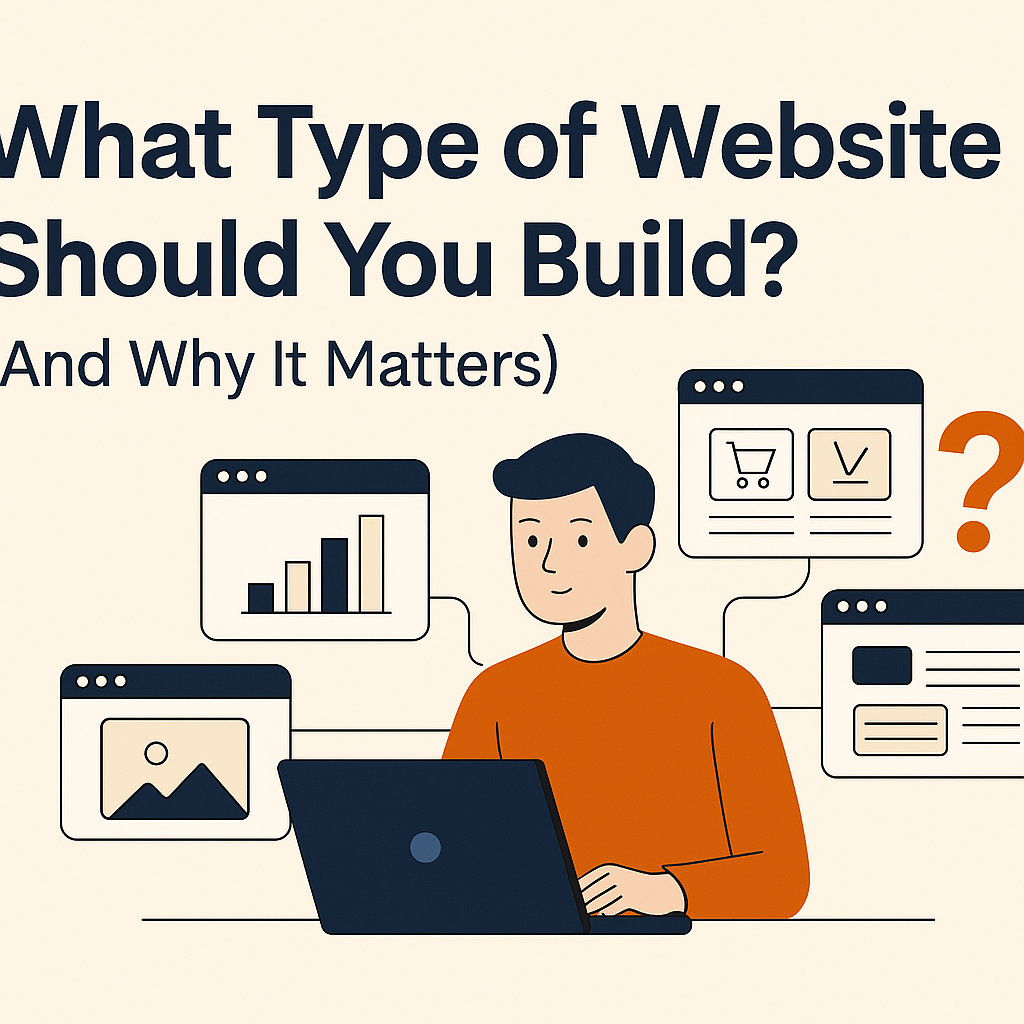If you’re just starting your online journey, one of the most important questions to answer is: what kind of website should I build? This one decision shapes everything that follows—from the platform you choose to your content, features, and even budget. Choosing the wrong type can waste time and money. But the right choice sets you up for success.
Let’s explore the five most common website types, how they work, and who they’re best for—so you can move forward confidently.
1. Business Website
This is the most common type of website, especially for service providers, consultants, and professionals. Its main goal is to showcase what you do, build trust, and convert visitors into leads or clients.
Who it’s for: Freelancers, consultants, agencies, brick-and-mortar businesses, coaches, and professionals.
What it needs: Home, About, Services, Testimonials, Contact, maybe a blog.
2. E-Commerce Store
If you want to sell products or services online, an e-commerce website is your best fit. It allows you to accept payments, manage products, and handle orders online.
Who it’s for: Product creators, dropshippers, small brands, and niche online stores.
What it needs: Shop page, product listings, cart/checkout system, secure payments, shipping settings, and a support/contact page.
3. Blog or Content Site
Blogs are content-driven websites that regularly publish articles, tips, guides, or stories. They are great for personal brands, content creators, or businesses looking to grow organic traffic.
Who it’s for: Writers, bloggers, educators, marketers, and niche content creators.
What it needs: Home, Blog, About, Categories, Search function, and clear calls-to-action.
4. Portfolio Website
A portfolio website is focused on visual presentation—it highlights past projects, work samples, and case studies. Think of it like your online resume, especially if you work in a creative or technical field.
Who it’s for: Designers, developers, photographers, artists, architects, and creatives.
What it needs: Home, Portfolio or Work, About, Testimonials, Contact.
5. Membership or Course Site
This type of site offers gated content, online courses, or community access. Members can log in, access material, and track progress. Requires more tech setup but can generate recurring income.
Who it’s for: Educators, coaches, course creators, and communities.
What it needs: Login system, content management, payment gateway, user dashboard, and support.
Still Not Sure? Take the Quiz.
Sometimes you’re a mix of two. Maybe you want to blog and sell a few products, or showcase your work and build a list. That’s normal.
That’s why we built a simple tool to guide you. In just a few questions, you’ll know which type of website best fits your goals—and what your next step should be.
👉 Take the Quiz: What Type of Website Should You Build?
Or, skip ahead and use our Website Starter Tool to get matched with the right hosting, platform, and launch plan.
Final Thoughts
Choosing the right type of website early makes every other step easier. It narrows your options, speeds up your launch, and helps you make smarter tech and design decisions.
Your website is the foundation of your digital presence. Let’s make sure you start with the right one.
